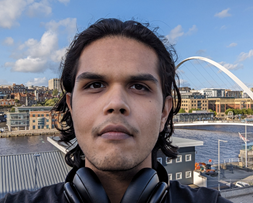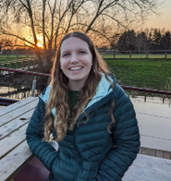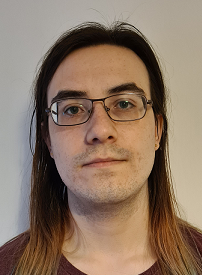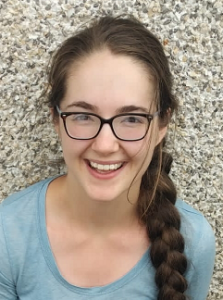Cohort Two
Meet the PhD students who joined the Centre in September 2023! Together they form a cohesive ‘cohort’ of PhD students.
Paloma Jol
I am Paloma Jol a PhD student working at Northumbria, I did my undergrad in Leiden, the Netherlands, and came to the UK for my PhD research. I am working with Dr Shaun Bloomfield on improving flare prediction for my research. I will train a Deep learning model that takes our observations of sunspots in the continuum and HMI images and historical flare activity reported by the Space Weather Prediction Centre to make predictions. By understanding the outcomes of the Deep learning model, we aim to understand better the underlying physics leading up to the solar flare eruption.


Shivdev Turkay
I obtained my integrated Masters’ in Physics with Astrophysics from Queen’s University, Belfast, for which I investigated magneto-acoustic waves within sunspot umbrae. It sparked my interest in magnetic structures and their role in energy transfer in the solar atmosphere.
At NUdata, I investigate the nature of tornadoes in the solar atmosphere that twist magnetic fields, giving rise to magneto-hydrodynamic waves that contribute to atmospheric heating. Their formation frequency and the effect of different atmospheric layers on them are still unknown. I employ machine/deep learning to identify these structures in MURaM simulations and observations from the largest ground-based solar telescope- Daniel K. Inouye Solar Telescope (DKIST).
Carolyn Mill
I’m a first year NUData student at Newcastle University. My research will focus on weak lensing and galaxy clustering as tools for cosmological parameter constraints. Both of these methods have systematic biases that limit the constraining power of our observations, and in preparation for the next generation of astronomical surveys it’s important to understand how these limitations will come into play once our measurements become more accurate. I hope to use the tools provided by the CDT modules to learn more about the way these systematics, and the interactions between them, will impact our measurements in upcoming surveys.
Before coming to Newcastle I completed my integrated Masters at the University of St Andrews. In my Masters project I looked at the clustering of spatially resolved galaxies, which motivated my interest in large-scale structure in cosmology.


Rose Shepherd
My PhD project focuses on developing sonification methods and tools to explore astronomical datasets. Sonification is the process of representing data with sound. Astronomical facilities are producing increasingly large multidimensional datasets, visually representing the full complexity of these data is challenging. Sonification offers an alternative to visualisation approaches, with the potential to enhance scientific discovery when exploring these complex datasets. Sonification can increase accessibility in astronomy for the blind and visually impaired community, as well as offering novel methods of science communication and education. I will work with experts in astrophysics and computer science based at both Newcastle and Northumbria Universities to conduct my research.
Before joining NUdata, I completed an integrated Master’s degree in physics with astronomy at the University of Nottingham. Outside of my studies I enjoy playing clarinet, and I hope to apply my musical skills to my sonification research!
Dan Roll
My name is Dan and I am currently investigating the issue of orbital debris as part of the NUdata CDT. My background is in artificial intelligence/computer science and my project is using methods such as computer vision to facilitate the automated detection of debris and other RSO’s. The problem is becoming more significant, and I hope my research can contribute to its solution. I’m enjoying learning new skills and concepts within such an interesting field as Solar physics and love the opportunities that studying through the CDT offers. I enjoy drinking coffee and outside of work I like to play golf and football (when the British weather permits!).


Rose Hinz
My name is Rose Hinz (she/her), an NUdata CDT student studying at Newcastle University. I previously studied an integrated master’s in physics at Newcastle University. My focus being on data sonification of galaxy spectra to improve accessibility and create research tools.
My PhD project revolves around numerical simulations of large-scale vortices in the polar region of Jupiter to find the origin of the cyclones, and why the vortices are long-lived. I will be doing this by investigating the “deep” model of the Jovian atmosphere to find how the cyclones interact with the convection currents present.
Ishbel Wright
My name’s Ishbel and I’m a 1st year PhD student studying the Aurora, or Northern lights to find out what makes them go bang basically. I’m hoping that by having taught courses in machine learning practices and data science we can apply new cutting edge techniques to the image data (pretty pictures) collected of the Aurora and see if the computer can see what we can’t. Image data is also very hefty so learning best practices for how to deal with this is going to be very useful, and hopefully fun!
When I’m not working on my research I can be found up at Keilder Observatory where I work as a science communicator and astronomer. Some might say I’ve just taken CPD a little too far by starting a PhD!


